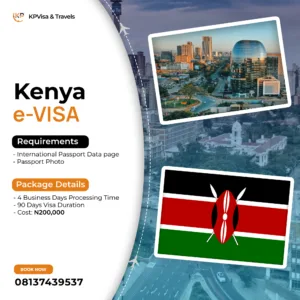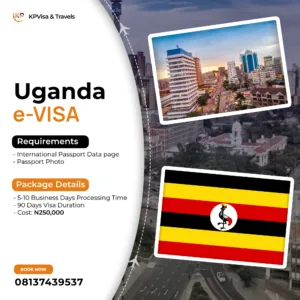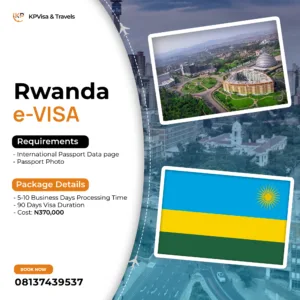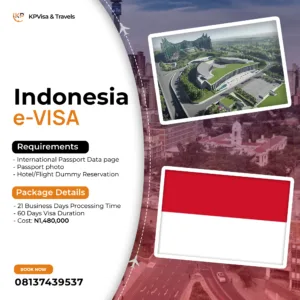“I did everything right. Why was my Schengen visa rejected?”
If this sounds like something you’ve asked (or screamed), you’re not alone.
Every year, thousands of Nigerians dream of walking the streets of Paris, exploring the history of Rome, or experiencing the culture of Berlin. Yet, that dream often hits a wall — the Schengen visa wall. In 2024, nearly 46% of Nigerian Schengen visa applications were denied. That’s almost 1 in 2!
With major changes now in motion, from digital border systems to online applications, 2025 isn’t just another year. It’s a breaking point for how Nigerians access Europe. Whether you’re a first-time applicant or reapplying after rejection, you need to stay ahead. This guide breaks down Schengen visa rules and updates for Nigerians as of October 2025, so you can stop guessing and start planning confidently.
📌 Read More
What Is a Schengen Visa and Why Does It Matter?
A Schengen visa is your ticket to travel across 29 European countries including France, Germany, Italy, Spain, and the Netherlands with a single visa. But for Nigerian passport holders, this isn’t a walk in the park.
Unlike some countries, Nigerians must apply in advance and prove they have enough money, a clear travel plan and a reason to return to Nigeria. With the European Entry/Exit System (EES) launching this month (October 2025) and a fully digital Schengen visa portal coming in 2026, travelers must now adapt fast or get left behind.
Schengen Visa Updates Nigerians Need to Know in October 2025
Let’s break down the most critical updates affecting you right now.
1. New Biometric Border System (EES) Begins This Month
Starting October 12, 2025, the EU’s Entry/Exit System (EES) officially rolls out.
- What it means:
- Passport stamping is being phased out.
- Your fingerprints and face will be scanned and stored digitally.
- Your entry and exit dates will be logged in a secure database.
- What to expect:
- Longer wait times at the airport the first time you visit.
- Delays are possible so arrive early at the airport.
- Border agents will be stricter with overstay detection.
2. Schengen Visa Goes Fully Digital in 2026 — Start Preparing Now
The EU has announced that by 2026, all Schengen visa applications will move to a single, centralized online portal.
But many embassies are already testing the system. So if you’re asking; “How to apply Schengen visa online Nigeria?”, “When will Schengen visa go digital?” The answer soon. Start learning the system today.
This digital platform will allow online form submission, document upload, secure payments and QR-code based e-visas (replacing visa stickers)
Pro tip: Stay updated so you can fast-track your application when the digital rollout hits Nigeria.
3. Why Schengen Visa Rejection Rates for Nigerians Are So High
As of 2024, Nigeria had one of the highest Schengen visa rejection rates in Africa. Some reasons include:
📰 Similar Posts
- Unverifiable documents
- Weak financial proof
- Suspicious travel intentions
- Incomplete applications
Nigerians lost over ₦8 billion on rejected applications in one year.
If you’ve been rejected before, don’t panic, you can appeal or reapply. But first, fix the issues.
How to Apply for a Schengen Visa in Nigeria (2025 Rules)
Ready to get started? Here’s a step-by-step process tailored for Nigerians in 2025.
Step 1: Choose Your Destination
Apply to the Schengen country where you’ll stay the longest, or where you will enter first, if staying equal time in multiple countries.
Step 2: Gather Required Documents
Schengen visa requirements for Nigerians include:
- Valid Nigerian passport (at least 3 months after return)
- 2 recent passport photos (white background)
- Visa application form (online or printed)
- Proof of accommodation (hotel or host invitation)
- Round-trip flight reservation
- Travel medical insurance (minimum €30,000 coverage)
- Bank statements (last 6 months)
- Evidence of employment/business
- Letter of leave (if employed)
- Cover letter (clearly explain purpose of visit)
Step 3: Book Your VFS Appointment
Most Schengen countries use VFS Global in Nigeria for processing. Book early slots fill up fast!
Step 4: Attend Biometric & Interview Appointment
You’ll submit Biometric data (fingerprints + photo), All documents and Interview answers (be honest!)
Tip: Be confident, have all supporting documents, and dress appropriately.
Step 5: Wait for Processing
- Standard time: 15 working days
- Busy periods: Up to 30+ days
- Visa fee (2025): Around €80 (₦75,000)
Schengen visa processing time Nigeria” is a trending query, so plan your travel accordingly.
Step 6: Track & Collect Your Passport
Track your application online or via SMS. Once ready, collect your passport from the same VFS location.
If approved — congrats!
If rejected — review reasons carefully and consider an appeal or reapplication.
What to Do if Your Schengen Visa Is Rejected
Rejection hurts, emotionally and financially. But you’re not alone.
Steps to take:
1. Carefully read the refusal letter.
2. Gather stronger supporting evidence.
3. File an appeal (if the country allows it).
4. Or reapply with better documents.
Use a professional consultant if needed. And never lie — false documents can get you blacklisted.
Pro Tips to Avoid Rejection (Apply Smart!)
Use these insider tips to boost your chances:
Apply 6–8 weeks before your travel date
Ensure all details (names, addresses, travel dates) match
Avoid large unexplained deposits
Have a strong reason to return (job, family, business)
Show a clear itinerary
Use your own bank account — not a friend’s
Write a strong cover letter
Choose less-busy embassies (Slovenia, Estonia, etc.)
Let’s be real, getting a Schengen visa from Nigeria in 2025 isn’t easy, but it’s definitely possible if you play smart.
Avoid the rejections, delays, and regrets. Know the rules. Submit clean documents. And stay updated because Europe’s borders are changing fast.
Need help with your visa, documents, or appeal process?
Contact us for further enquiries. Our team is ready to walk you through your application, step-by-step. Don’t leave your dream to chance.





































No responses yet